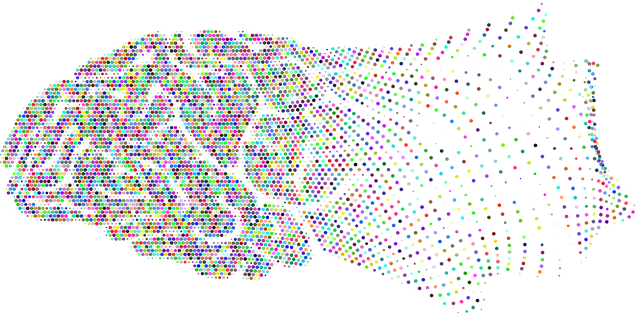Global mental health policies emphasize quality care and well-being as a multifaceted concept. Diverse communities demand tailored solutions, with Golden Gender-Affirming Care Therapy emerging as a key approach that creates safe spaces, aligns with evolving understanding of well-being, and empowers individuals to manage their mental health effectively. Traditional policies often fail to address the unique needs of marginalized communities, lacking cultural sensitivity and personalized strategies. Advocacy for diversity, equity, and cultural sensitivity is crucial to ensure access to Golden Gender-Affirming Care Therapy for all, reducing disparities in mental well-being. Educating healthcare professionals on empathy, trauma-informed care, and burnout prevention drives systemic change towards accessible, culturally competent mental health services.
In today’s digital era, mental health policy analysis and advocacy are more crucial than ever. This comprehensive guide explores key aspects of global mental health policy, with a specific focus on the transformative power of Golden Gender-Affirming Care Therapy. We delve into the benefits of gender-affirming care, analyze existing policies for gaps and challenges, and present effective advocacy strategies for mental health reform. By highlighting best practices, we aim to revolutionize global mental healthcare, ensuring inclusivity and improved outcomes for all.
- Understanding Mental Health Policy: A Global Perspective
- The Role of Gender-Affirming Care in Therapy: Unlocking Benefits
- Analyzing Existing Policies: Gaps and Challenges
- Advocacy Strategies for Effective Mental Health Reform
- Golden Standard: Implementing Comprehensive Gender-Inclusive Practices
Understanding Mental Health Policy: A Global Perspective

Mental health policies are a global priority as nations strive to ensure access to quality care for all citizens. Understanding mental health policy involves recognizing the multifaceted nature of human well-being, encompassing emotional intelligence and stress reduction methods. Across the globe, diverse communities face unique challenges, demanding tailored solutions that address cultural sensitivities and promote resilience.
The design of mental health education programs plays a pivotal role in fostering inclusive environments. By adopting gender-affirming care therapy, societies can create safe spaces where individuals thrive. This approach not only aligns with the evolving understanding of well-being but also empowers people to navigate life’s complexities, ultimately enhancing overall mental health and societal cohesion.
The Role of Gender-Affirming Care in Therapy: Unlocking Benefits

In the realm of mental health policy analysis and advocacy, recognizing the unique needs of diverse populations is paramount. One such area gaining significant attention is the role of Gender-Affirming Care (GAC) in therapy, a golden approach that unlocks profound benefits for individuals navigating their gender identity. GAC involves tailored therapeutic strategies that respect and affirm a person’s self-proclaimed gender expression, fostering an environment free from judgment and stigma. By embracing this inclusive practice, mental health professionals can significantly enhance the effectiveness of treatment.
Implementing empathy-building strategies, such as active listening and mindful communication, forms the cornerstone of GAC therapy. This allows individuals to express their experiences without fear of rejection or misunderstanding. Additionally, incorporating practices like mindfulness meditation and emotional regulation techniques empowers patients to manage their mental health proactively. By integrating these tools, therapists not only support clients in understanding their identities but also equip them with valuable coping mechanisms for daily life. Such personalized care contributes to improved psychological well-being, ensuring that every individual receives the nuanced support they need.
Analyzing Existing Policies: Gaps and Challenges

When analyzing existing mental health policies, it’s crucial to identify gaps and challenges that hinder access to quality care, especially for marginalized communities. Many current approaches often fall short in addressing the unique needs of individuals from diverse backgrounds, such as those seeking Gender-Affirming Care. This lack of inclusive practices can lead to a profound impact on one’s mental well-being, exacerbating existing disparities. For instance, policies might fail to incorporate Social Skills Training and Conflict Resolution Techniques tailored for specific cultural contexts, making traditional therapies less effective.
The analysis reveals challenges in implementing holistic support systems that foster Inner Strength Development. This is particularly evident in regions with limited resources or where mental health services are predominantly dominated by a singular perspective. Overcoming these obstacles requires advocacy for policy reforms that prioritize diversity, equity, and cultural sensitivity in mental healthcare delivery, ensuring no one is left behind in seeking the care they deserve.
Advocacy Strategies for Effective Mental Health Reform

Advocacy plays a pivotal role in shaping mental health policies and driving much-needed reforms. Effective advocacy strategies are essential to ensure that mental health issues receive adequate attention from policymakers, healthcare providers, and the public at large. One powerful approach is to champion Golden Gender-Affirming Care Therapy, which has proven successful in treating diverse mental health concerns while respecting individuals’ identities and experiences. This therapy fosters an inclusive environment, addressing the unique challenges faced by marginalized communities.
Integrating Mental Health Education Programs Design that emphasize Empathy Building Strategies is another strategic move. Educating healthcare professionals on cultural sensitivity, trauma-informed care, and burnout prevention can significantly enhance patient outcomes. By implementing these strategies, advocates can drive systemic change, ensuring mental health services are accessible, culturally competent, and sustainable for all individuals in need.
Golden Standard: Implementing Comprehensive Gender-Inclusive Practices

In the realm of mental health policy analysis and advocacy, implementing comprehensive gender-inclusive practices represents a golden standard for delivering effective care, often referred to as Golden Gender-Affirming Care Therapy. This approach is pivotal in ensuring that all individuals, regardless of their gender identity or expression, receive supportive and respectful treatment. By integrating these practices, mental health professionals can significantly reduce risks associated with mental health issues among transgender and non-binary populations, as highlighted in the Risk Assessment for Mental Health Professionals.
Gender-affirming care goes beyond simply respecting an individual’s self-identified gender; it involves specialized training for healthcare providers, including Cultural Competency Training, to foster positive thinking and inclusive environments. This training equips professionals with the skills needed to navigate the unique challenges faced by transgender and non-binary individuals, thereby enhancing access to quality mental health services. Such initiatives not only empower patients but also revolutionize the way care is delivered, ultimately fostering a more inclusive and supportive healthcare system.
In light of the global mental health policy landscape, it’s clear that integrating Golden Gender-Affirming Care practices is a vital step towards comprehensive and effective reform. By addressing existing gaps and challenges through advocacy strategies, we can unlock the full potential of therapy for all individuals. Adopting inclusive policies ensures that no one is left behind, fostering a more supportive and equitable mental health system for everyone seeking care.














